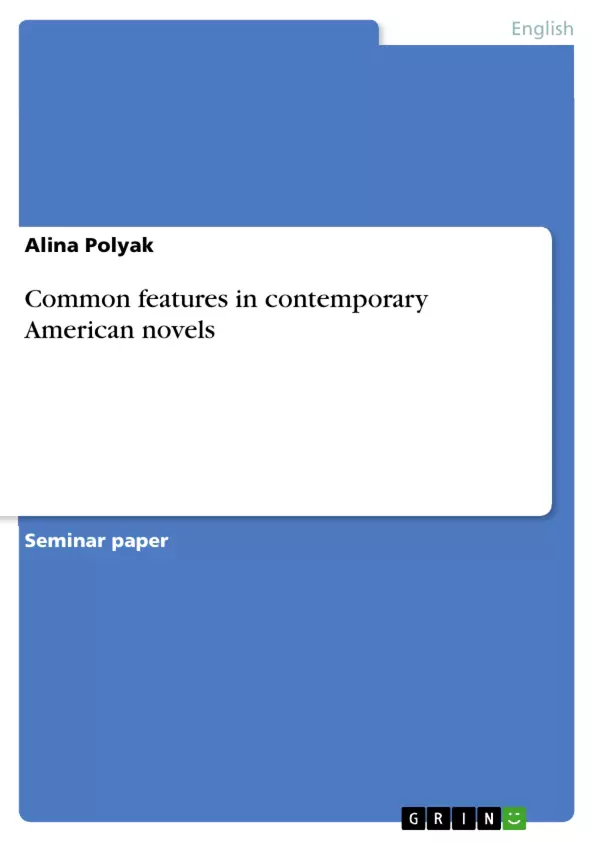Comparison of three novels: : “The Time of our Singing” by Richard Powers, “Namesake” by Jhumpa Lahiri and “Middlesex” by Jeffrey Eugenides.
The authors, sharing the common cultural space, share also similar experiences and face similar problems. Coming from quite different backgrounds they might have more in common than it could seem at a first glance.
Table of Contents
- Introduction
- Authors and their characters - sharing a common destiny?
- Searching for identity and acceptance.
- Love and marriage
- Deconstruction of chronology. Real historical events in fictional stories.
Objectives and Key Themes
This paper examines the commonalities between three contemporary American novels: "The Time of our Singing" by Richard Powers, "Namesake" by Jhumpa Lahiri, and "Middlesex" by Jeffrey Eugenides. The author explores whether these similarities are mere coincidences or indicative of a broader development in modern American literature.
- The theme of identity and its formation in the modern world.
- The exploration of immigrant experiences and the challenges of navigating cultural differences.
- The portrayal of generational conflicts and the search for acceptance within families and communities.
- The use of complex narrative structures and the deconstruction of traditional chronological storytelling.
- The blurring of boundaries between "immigrant" and "mainstream" literature.
Chapter Summaries
- Introduction: This chapter introduces the paper's focus on commonalities between three contemporary American novels. The author highlights the diversity of the texts and suggests that while general conclusions are difficult, certain shared themes and elements emerge.
- Authors and their characters - sharing a common destiny?: This chapter delves into the authors' personal backgrounds and how their experiences might influence their fictional creations. It examines the autobiographical elements in the novels, particularly in relation to the experiences of immigration and cultural identity. It explores the life and work of Jeffrey Eugenides, focusing on his background as a descendant of Greek immigrants and his portrayal of this experience in "Middlesex."
- Searching for identity and acceptance.: This chapter delves into the themes of identity and acceptance, focusing on how the characters navigate their complex identities in a multifaceted society. It highlights the tension between generations, the struggle to reconcile cultural heritage with modern life, and the challenges of belonging in a diverse world.
Keywords
This paper explores the themes of identity, immigration, generational conflict, and the deconstruction of traditional narrative structures in contemporary American novels. It examines the works of Jeffrey Eugenides, Jhumpa Lahiri, and Richard Powers, focusing on their shared explorations of cultural identity, family dynamics, and the challenges of belonging in a diverse world. Keywords include: American literature, contemporary novels, identity, immigration, family saga, narrative structure, cultural conflict, acceptance, generational tension, immigrant experience, cultural heritage.
- Arbeit zitieren
- Alina Polyak (Autor:in), 2005, Common features in contemporary American novels, München, GRIN Verlag, https://www.grin.com/document/39992



